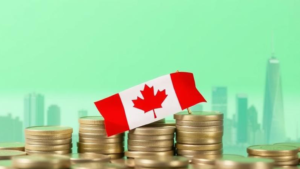
UK Grocery Inflation Eases to 5% in August 2025
UK grocery inflation eases to 5% in August 2025, showing slight relief. Consumers shift to value shopping as branded items rise and dining out declines.

COVID-19 changed the corporate environment in the blink of an eye, highlighting a vital, often misunderstood truth: that to generate, manage, and sustain company value, leaders must consider a much broader and more diversified collection of stakeholders than just shareholders. In fact, disruption and the scope of the value-generating ecosystem share a connection.
Managing a varied ecosystem of numerous components to create and maintain corporate value has been a challenge for many years. What the COVID-19 pandemic has changed is that it brought to light the fragility of ecosystem connections as well as the speed of change within them. It has also expedited and intensified the links between financial performance, resiliency, and culture. Moreover, it has also highlighted the dangers of disregarding any of these components of the value generation ecosystem.
COVID-19 has had a significant influence on several corporate areas. Other long-term upheavals, such as the accelerating pace of technical advancement, investment concerns, and consumer issues, have the same consequences. As these forces become more powerful, some will have a significant and rapid impact on enterprise value. Now is the chance for leaders to assess these different impacts and use disruption as an offensive weapon by rethinking their strategic planning, redefining their strategies, and updating their work process.
If a strategy is revolutionary or disruptive, it can be difficult, if not impossible, to predict its value creation potential before it is implemented. In reality, any attempt could stifle innovation and, as a result, affect its value. Executives should rather strive for a visionary valuation by defining the kind of value they want to generate. The firm should continuously measure the outcomes of the strategy and leverage the results to re-calibrate and replace the strategy, thereby reporting, listening, and responding to stakeholders in a feedback mechanism.
Strategic changes are only effective when a company reallocates the resources, expertise, and other resources required to implement them. Resistance is caused by a number of factors, including the individual interests of an organization’s executives. However, in today’s world of constant disruption and shifting value perceptions, it is critical to be ready to respond radically and swiftly in allocating resources where they’re most required, or the strategy will fail.
Although COVID-19 has accelerated change, allowing for more actions, it has also extended the spectrum of potential objectives that leaders must examine when determining where to align their efforts. As a result, being able to prioritize, identify, and act on the most important value generators in the value-creating ecosystem is more critical than ever.

UK grocery inflation eases to 5% in August 2025, showing slight relief. Consumers shift to value shopping as branded items rise and dining out declines.

Zelenskiy–Trump summit boosts markets as equities rise and the dollar steadies amid growing peace hopes. Investors await Fed insights at Jackson Hole for further direction.

Statistics Canada is investigating an accidental early release of June manufacturing data, raising concerns over data governance and market integrity. The agency has launched an internal review to strengthen its publishing protocols.

Investor confidence in France is deteriorating as political gridlock and budgetary uncertainty deepen.

June 09, 2025: Canada will host the 50th G7 Summit from June 15 to 17 in Kananaskis, Alberta, amid heightened global tensions and economic rifts.

May 30, 2025: Canada’s economy expanded at an annualized rate of 2.2% in the first quarter of 2025, outperforming the market forecast of 1.7%.

At seventeen, Professor Richard Rose stepped into a world few adults dare to navigate: the world of children fractured by trauma. He wasn’t a clinician then, nor a scholar. He was simply a young man with a heart tuned to the quiet ache of others.

Following a distinguished Law Enforcement career Joe McGee founded The Securitatem Group to provide contemporary global operational specialist security and specialist security training products and services for private clients, corporate organisations, and Government bodies. They deliver a wide range of services, including complete end-to-end protection packages, close protection, residential security, protection drivers, and online and physical installations. They provide covert and overt investigations and specialist surveillance services with a Broad range of weapons and tactical-based training, including conflict management, risk and threat management, tactical training, tactical medicine, and command and control training.

Jay Wright, CEO and Co-Owner of Virgin Wines infectious energy, enthusiasm, passion and drive has been instrumental in creating an environment that encourages talent to thrive and a culture that puts the customer at the very heart of every decision-making process.

Fabio de Concilio is the visionary CEO & Chairman of the Board at Farmacosmo, a leading organization dedicated to mental health and community support services. With a deep commitment to identifying and meeting customer needs, Fabio ensures that high standards are maintained across the board.

Leave us a message
Subscribe
Fill the form our team will contact you
Advertise with us
Fill the form our team will contact you